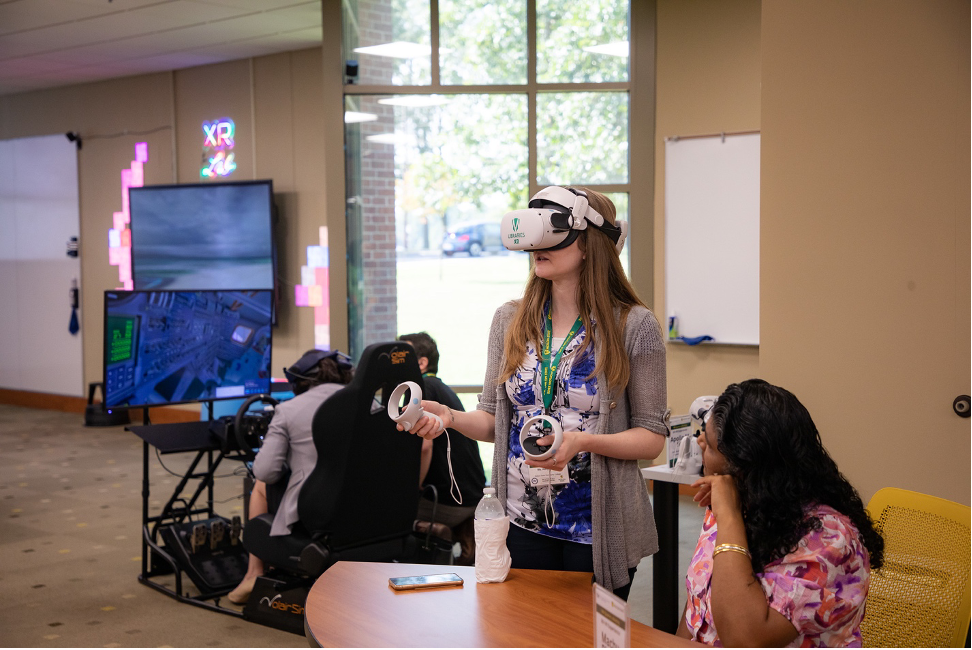
LYNCHBURG, Tenn. — Motlow State Community College is one of six institutions selected for a $4,000,000 grant from the National Science Foundation (NSF). The grant goes toward the Resource Collaborative for Immersive Technologies (RECITE), a collaborative between academic institutions and NSF grantees. This project is designed to promote the research, development, and usage of extended reality (XR) technology in community college education.
The National Science Foundation is a federal agency that funds researchers and educational professionals to promote scientific research and training. Through the NSF’s Advanced Technological Education (ATE) program, grants are made to advance the education of technicians for the high-technology fields that drive our nation’s economy. Virtual reality (VR) along with augmented (AR) and mixed reality (MR) involves using head-mounted displays or mobile devices to place users in virtual environments where they can work, learn, or play.
Due to contact restrictions during the COVID-19 pandemic, colleges accelerated the adoption of XR in education, but a gap exists between four-year and two-year institutions. St. Cloud State University, NSF ATE Center Caves, Somerset Community College, NSF ATE Center EARTh, Motlow State, and CAST are the six institutions collaborating on the RECITE project to address this gap in adopting immersive educational technology. Through the NSF grant, the team will focus on four primary initiatives: assess XR usage in two-year colleges, train technician educators on using XR in high-technology education, provide two-year colleges access to curated XR educational content, and broaden XR usage into other types of educational institutions.
The team will use the grant’s funds to identify educational needs at two-year colleges XR can enhance or meet. Their work will help chart a course for institutions seeking to build support for XR from the ground up. Through RECITE’s work to make resources available to educators, colleges can build collaborative relationships, increasing their access to XR content and technology to enhance their students’ experiences. Motlow’s XR Lab Administrator David Presley serves as Co-Principal Investigator on the grant, leading RECITE’s initiative to curate and make educational VR content more widely available.
Mr. Presley stated, “We’re excited to launch RECITE to enhance education in community colleges nationwide. There is a gap in access to and knowledge of advanced technology when you compare community colleges and four-year universities. This NSF grant will be a great starting point to help advance game-changing technology and make Motlow a national leader in this effort.”
Motlow currently provides XR equipment in the libraries of all four campuses and has dedicated VR labs at its Moore County and Smyrna campuses. Motlow has integrated VR into coursework, including history classes where students can visit ancient archaeological sites, create art, or learn new skills. The college also provides access to VR experiences for recreation and socializing, providing a new way for students in rural colleges to become more connected.
To learn more about XR education at Motlow, visit https://library.mscc.edu/xr-lab. •
{The Lynchburg Times is a nonpartisan, independent community newspaper serving Lynchburg, Tennessee and the surrounding counties. We are dedicated to public service journalism for the greater good of our community. You can support us, by clicking here.}
